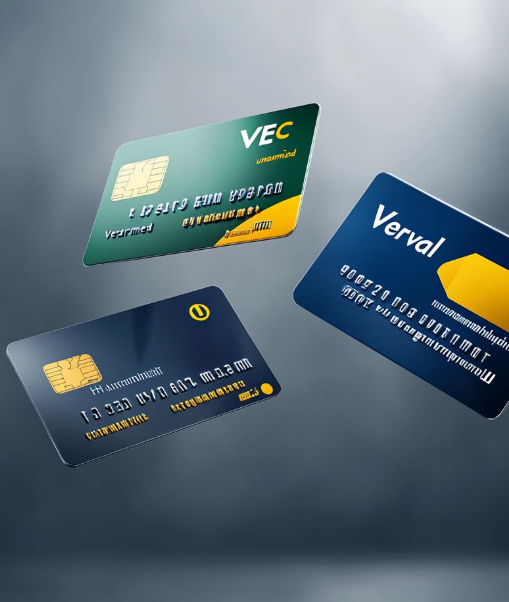When it comes to securing your cryptocurrency, choosing the right wallet is essential. As we approach 2024, the need for secure storage options has never been more critical. Whether you’re holding Bitcoin, Ethereum, or other digital assets, knowing the best wallets for your needs will ensure your investments remain safe. In this guide, we’ll explore the top crypto wallets for 2024 and help you choose the best option to manage your digital wealth.
What Are Crypto Wallets and Why Are They Important?
A crypto wallet is a digital tool designed to store and manage cryptocurrencies. Unlike physical wallets that hold cash, a crypto wallet holds private keys, which are essential for accessing and controlling your cryptocurrency. With the rise of digital currencies like Bitcoin, having a reliable crypto wallet has become crucial for anyone serious about investing or trading in crypto.
Types of Crypto Wallets: Which One Is Right for You?
Crypto wallets are categorized into two main types: hot wallets and cold wallets. Each has its advantages and drawbacks, depending on your needs.
Hot Wallets vs. Cold Wallets
- Hot Wallets are online wallets that connect to the internet, making them more convenient for daily transactions. Examples include mobile wallets, desktop apps, and online platforms. Hot wallets are ideal for those who need frequent access to their crypto assets. However, being online, they are more vulnerable to hacks. To enhance security, users should always enable strong passwords and two-factor authentication (2FA).
- Cold Wallets, on the other hand, are offline storage options, providing a much higher level of security. Examples include hardware wallets and paper wallets. Cold wallets are preferred for long-term storage and large amounts of cryptocurrency since they are not connected to the internet, reducing the risk of online attacks. Although they lack the convenience of hot wallets, cold wallets offer peace of mind for serious investors.
Hardware Wallets: Superior Security for Large Holdings
Hardware wallets are physical devices designed to securely store your crypto assets offline. These wallets offer top-notch protection, making them the safest option for those holding significant amounts of cryptocurrency. Popular models like Ledger Nano X and Trezor Model T include features such as PIN codes, recovery phrases, and biometric authentication to safeguard your private keys. The added security makes hardware wallets immune to malware and computer viruses, ensuring your assets remain safe.
Despite being pricier than software wallets, their robust security measures make hardware wallets a smart investment for those serious about long-term crypto storage.
Software Wallets: Convenience with Security Features
Software wallets, which can be downloaded as mobile apps or desktop applications, offer a convenient balance of usability and security. They’re ideal for smaller amounts of cryptocurrency and day-to-day transactions. Features like QR code scanning for payments, integration with exchanges, and support for multiple cryptocurrencies make them popular. However, because they are online, software wallets are more exposed to hacking risks. It’s essential to keep these wallets up to date and employ strong security practices.
Paper Wallets: An Offline Storage Method
A paper wallet is a simple yet effective way to store cryptocurrency offline. It involves printing your private keys on paper, which keeps them safe from online attacks. While this method is highly secure from a digital standpoint, it comes with its own risks. Paper wallets must be handled carefully to avoid loss or damage. If the paper is destroyed or stolen, you risk losing access to your crypto assets entirely. Therefore, it’s important to store paper wallets in a secure, dry place and consider making multiple copies.
Best Crypto Wallets to Use in 2024
Here are some of the top crypto wallets for 2024, offering a variety of features based on your needs:
Ledger Nano X: Best for Cold Storage
The Ledger Nano X is one of the leading hardware wallets, praised for its superior security features and ease of use. It supports numerous cryptocurrencies, including Bitcoin, Ethereum, and many altcoins. This wallet connects to your smartphone or computer via Bluetooth, making it portable and easy to manage on the go. The Ledger Live app helps you manage your portfolio, track real-time market prices, and perform secure transactions, all while keeping your private keys offline.
Trezor Model T: A Solid Cold Wallet Choice
The Trezor Model T is another high-security hardware wallet that supports over 1,000 cryptocurrencies. With a color touchscreen for easier navigation and transaction verification, Trezor provides excellent security and usability. The wallet’s open-source firmware and compatibility with third-party wallets enhance its transparency and flexibility. The Trezor Suite software provides a comprehensive, user-friendly interface for managing your crypto assets securely.
Trust Wallet: Ideal for Mobile Users
For mobile users, Trust Wallet offers an intuitive app with strong security features. It supports a wide range of cryptocurrencies and seamlessly integrates with decentralized finance (DeFi) platforms. With features like staking and trading, Trust Wallet allows users to access decentralized applications (dApps) directly from their phones. It also provides security features like secure key backup and biometric authentication, ensuring your assets are protected.
Coinbase Wallet: A One-Stop Shop for Beginners
Coinbase Wallet is a great option for newcomers to cryptocurrency. It integrates seamlessly with the Coinbase exchange, offering an all-in-one solution for buying, storing, and managing crypto. The wallet supports numerous digital assets and provides access to decentralized exchanges (DEXs), DeFi services, and NFTs. With its simple interface and secure backup system, Coinbase Wallet is ideal for beginners while still offering advanced features for experienced users.
MetaMask: Best for Ethereum and DeFi Users
MetaMask is a browser extension wallet that’s particularly popular with Ethereum users. It supports Ethereum and ERC-20 tokens, making it perfect for interacting with decentralized applications (dApps) on the Ethereum blockchain. MetaMask also integrates with hardware wallets like Ledger and Trezor, adding an extra layer of security. Its built-in DEX aggregator allows users to trade tokens efficiently, and its ongoing development by the Ethereum community ensures it remains a reliable choice for DeFi enthusiasts.
How Crypto Wallets Work
A crypto wallet functions by storing the private keys needed to access and manage your cryptocurrency. Every transaction you make—whether sending or receiving—requires your private key to sign and verify the transaction. While the public key serves as your wallet address, your private key is what grants you control over your funds. Protecting your private key is crucial, as anyone who gains access to it can control your crypto assets.
How to Choose the Right Wallet for You
When selecting a crypto wallet, consider factors such as security, ease of use, and the types of cryptocurrencies you plan to store. If you’re looking for long-term storage for a large amount of cryptocurrency, a hardware wallet is your best bet. For everyday transactions, a software wallet or a combination of hot and cold wallets offers a convenient and secure option.
Before making your choice, research wallet providers, read user reviews, and evaluate the features you need, such as staking, DeFi access, or cross-chain support.
Setting Up Your Crypto Wallet: A Step-by-Step Guide
- Choose a Wallet: Select a wallet that aligns with your needs, whether it’s a hardware wallet like Ledger Nano X or a mobile app like Trust Wallet.
- Download and Install: For software wallets, download the app from an official source.
- Create an Account: Follow the setup instructions, including creating a strong password and generating a recovery phrase.
- Secure Your Wallet: Write down your recovery phrase and store it safely. This phrase is your key to recovering your wallet in case of device loss.
- Add Cryptocurrency: Transfer crypto from an exchange or another wallet to your new wallet.
Conclusion
Choosing the right crypto wallet is essential for securing your digital assets. Whether you prefer the added security of cold wallets or the convenience of hot wallets, each type has its advantages based on your storage needs. By understanding the differences between wallets and carefully selecting the right one, you can ensure the safety and accessibility of your cryptocurrency for years to come.













